Duke Clinics
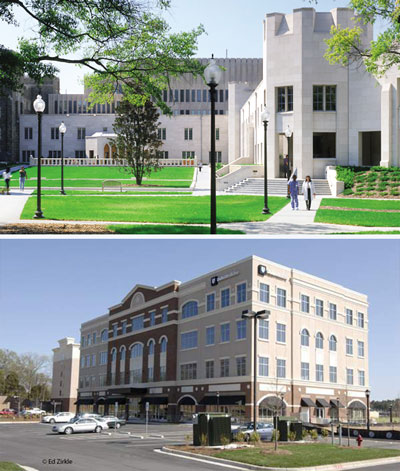
While on their Duke rotations, residents see patients in outpatient clinics at the Duke South Clinic, Patterson Place Clinic, Dawson Hall Clinic, and the South Durham Clinic. Since Duke is the major private tertiary care center in the Southeast, physician and hospitals refer complicated cases from all over the region. Duke is also a primary care facility for the people of the city/county of Durham and surrounding cities/counties. When our residents rotate through outpatient clinics, they focus on either general dermatology or specialty dermatology. We have a robust and experienced group of general dermatologists. We see primary care dermatology patients from the surrounding communities, as well as complicated medical dermatology referrals from North Carolina and surrounding states. Most of our faculty also hold specialty clinics.
Durham VA Medical Center
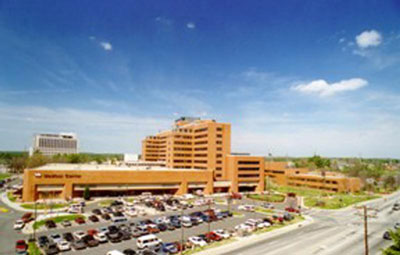
The dermatology service at the Durham VA Medical Center has active inpatient, outpatient and consult services. The clinics are staffed by our Dermatology faculty. There are general dermatology clinics, acute care clinics, procedure clinics, laser clinics, and teledermatology at the VA. Our first year residents have their weekly Resident Continuity Clinic at the VA. The VA Chief rotation (2nd and 3rd year) is an excellent experience which includes consults, dermatologic surgery, dermatopathology, general dermatology clinics, high risk skin cancer clinics, teledermatology and administrative experience.
A resident-staffed Dermatologic Surgery clinic is held two times per week in which outpatient surgery for both benign and malignant skin disease is performed. The inpatient consult service provides dermatologic consultation to the entire hospital. Immediate dermatologic consultation is provided to all VA outpatient clinics, as well.
Pediatric Dermatology
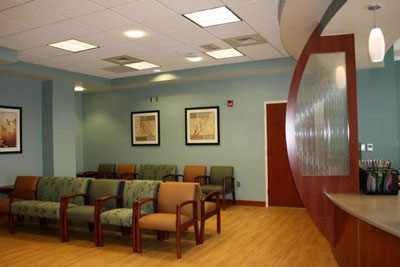
Dermatology residents rotate through an active pediatric dermatology clinic located at Patterson Place. Our patient population comes from both internal Duke Pediatrics referrals and external referrals from pediatricians and dermatologists from across the Southeast. Hospitalized infants and children are seen in consultation with the pediatric inpatient service. Residents have exposure to pediatric dermatologic surgery and laser therapy. Didactic sessions are held within the framework of the conference schedule to familiarize trainees with the full spectrum of pediatric dermatology. During the course of their training, residents develop expertise in the diagnosis and management of common and unusual skin diseases of infants, children and adolescents.
Dermatologic Surgery
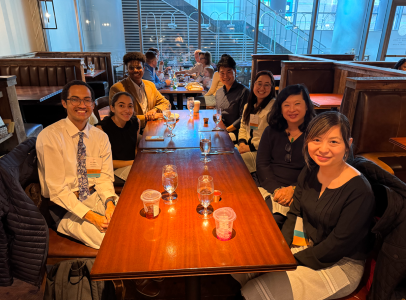
Mohs Surgery
The Mohs Surgery Unit provides residents with training in cutaneous surgery. Dr. Jonathan Cook and Dr. Chris Stamey direct clinics located at Patterson Place and Wakefield, respectively. Although the clinical emphasis is on Mohs Surgery, residents are also exposed to a variety of common dermatologic surgical procedures during this rotation. These include routine operations (complex standard excisions, nail surgery), reconstructive procedures (skin flaps, skin grafts) and dermabrasion. First, second, and third year residents rotate through these clinics.
Procedural and Cosmetic Experience
In addition to the Mohs surgery component of surgical training, residents rotate through general procedure clinics, nail procedure clinics, and cosmetic clinics. In addition, our residents work with our general dermatology attendings who perform dermatologic surgery, including excision of benign and malignant lesions, nail procedures, acne surgery and destruction of benign lesions. Our third year residents take care of the surgical needs of our resident continuity clinic patients in resident procedure clinics. There are also resident cosmetic clinics several times per year in which residents administer Botox, fillers, and learn other cosmetic procedures.
Laser Clinic
Increasingly, laser therapy of skin conditions is a part of everyday dermatology practice and knowledge of the strengths and weaknesses of laser will be useful for appropriate advice and referral. You will observe and participate in the use of laser surgery for a diversity of skin conditions. Dr. Claude Burton oversees our laser procedures and the Resident Laser Clinic. The Resident Laser Clinic offers the opportunity to independently evaluate the patient, explain the procedure, obtain informed consent, and treat the patient, with attending supervision. There is also a Resident Laser Clinic at the VA hospital and opportunity for laser use at Patterson Place clinics.
Dermatopathology
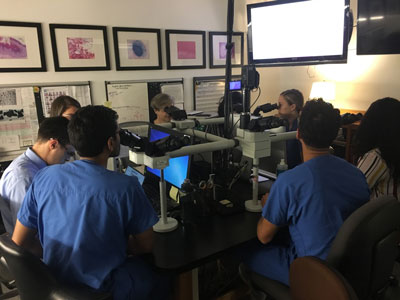
Dermatopathology Rotation
All dermatology residents undergo formal, supervised training in dermatopathology each year of their residency, rotating 1-2 months/year in the dermatopathology unit. On a team with rotating Pathology residents, Dermatology residents preview glass slides and the clinical presentation prior to sign-out at a multiheaded microscope with the attending Dermatopathology faculty. The case material includes in-patient “STAT” skin biopsies, routine biopsies, and interesting excisions performed at Duke University Medical Center and affiliated practices. In addition, interesting outside dermatopathology consultation cases may be reviewed and unknown slide sessions are a common occurrence to enhance learning. Dermatology residents can expect to gain exposure to a large breadth of cases ranging from “bread and butter” routine skin diagnoses to complex melanocytic lesions, inflammatory eruptions, lymphomas, infectious processes, and neoplastic proliferations. Numerous histochemical, immunohistochemical, and immunofluorescence studies are performed daily. Dermatology residents performing clinical rotations are encouraged to study the slides of the biopsies and excisions they performed to enhance clinical-pathologic correlation. Dermatopathology faculty and the fellow are available to meet with Dermatology residents to review any cases if desired on an individually scheduled basis. Dermatology residents may also have the opportunity to spend elective time within the Dermatopathology unit performing research projects or reviewing particular topics of interest in the large slide library.
Didactic Conferences
The Dermatopathology didactic conference covers dermatopathology topics systematically and is held weekly throughout the year in an interactive virtual environment. The topics are organized according to Weedon’s Skin Pathology textbook and are taught by Dermatopathology faculty and the Dermatopathology fellow. The virtual setting helps familiarize Dermatology residents with reviewing pathology via virtual scanned slides similar to those used in Dermatology board examinations. “Potpourri” review and quiz-style sessions are also mixed in during the course of the year to help residents prepare for examinations.
Duke Hospital Consults
Our residents participate in a strong hospital consult service at Duke. This is a predominantly second and third year rotation, with some introductory experience for first years. Our residents see inpatients on the adult and pediatric inpatient service, in the Emergency Room, and help to coordinate referrals and calls from physicians from within and outside Duke. They read dermatopathology slides of inpatient cases with the dermatopathology team. They are actively involved in the daily care of our inpatients.
Lincoln Community Health Center
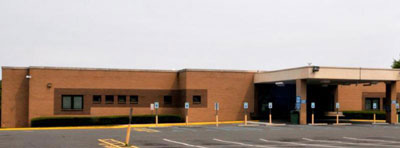
First year residents actively participate in dermatology clinics at Lincoln Community Health Center. As taken from their website, “The Mission of Lincoln Community Health Center is to provide comprehensive primary and preventive health care in a courteous, professional and personalized manner. As a leader in the provision of community health care, Lincoln Community Health Center is committed to collaborating with other institutions dedicated to the continuous improvement in services being provided to decrease health disparities, while assuring access to all.” This clinic focuses on providing dermatologic services to the people in our community with limited access to health care. Faculty attend on a rotating basis, with Dr. Sarah Wolfe acting as anchor, as a monthly attending supervisor.
Clinical/Research Elective
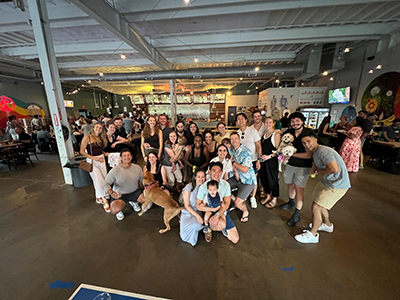
Second and third year residents have the opportunity to do clinical and/or research electives during the academic year. This opportunity is dependent upon a variety of factors including the status of the resident, the purpose of the proposal, the timing and location of the elective, departmental resources and administrative issues. Examples of previous resident electives include an elective in Africa, an elective at the NIH, specialty electives at other academic dermatology departments in the United States, and administrative/research electives.